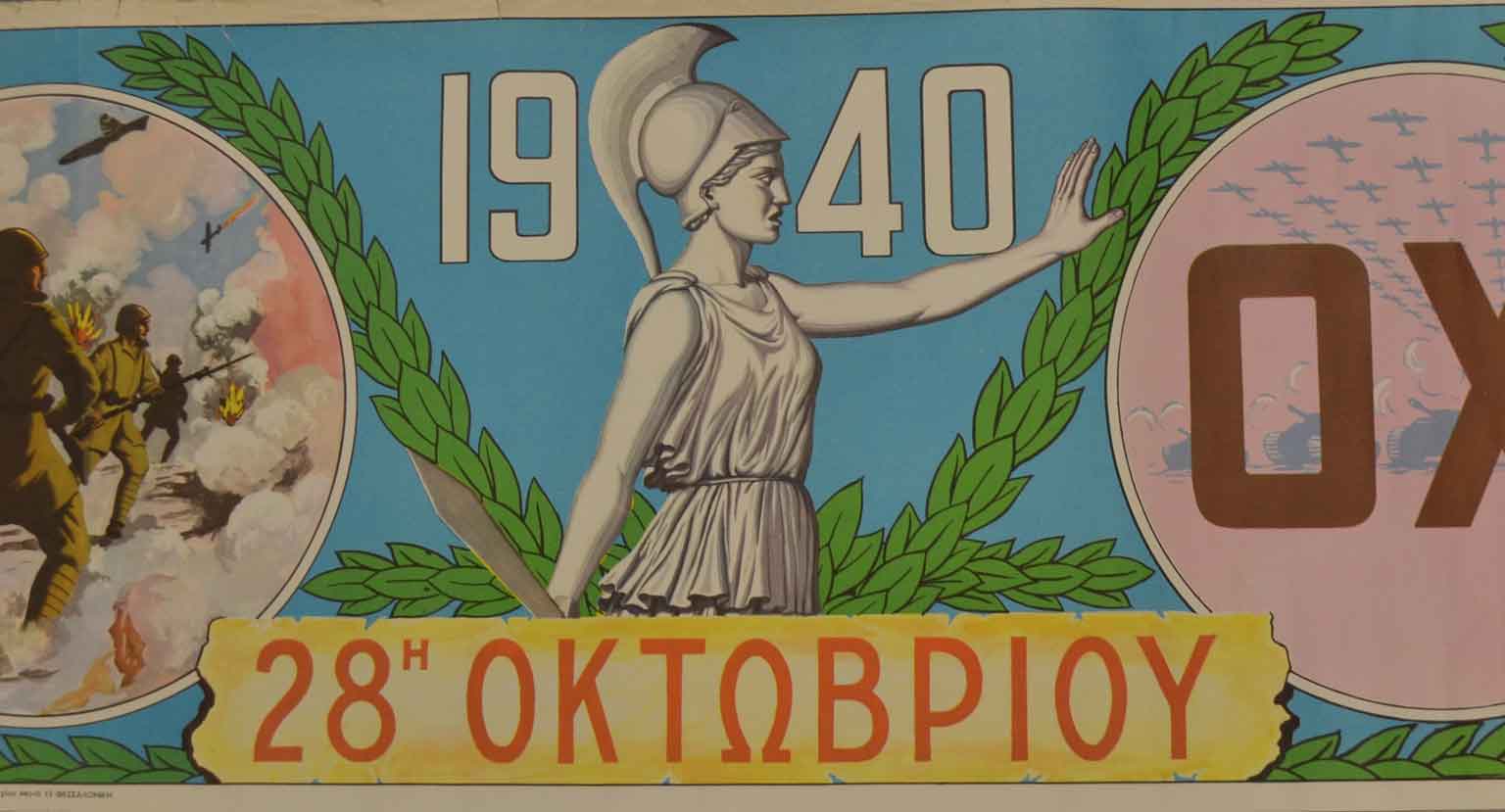
Oxi Day and the power of saying “No”
Remembering Oxi Day and the Power of Saying “No”
By Dr. Katherine Kelaidis, Resident Scholar and Director of Academic Collaborations at the National Hellenic Museum
Today we remember the power of saying “No.”
Oxi Day is celebrated as a commemoration of Greek valor and the spirit of freedom. It also serves as a poignant reminder of the power of saying “No” to forces of hatred and evil, regardless of how powerful they might appear or how powerless one might feel. (The word “No” is “Oxi” in Greek, pronounced oh-he.)
Adolf Hitler’s army invaded Poland on September 1, 1939. For thirteen months, the world watched as one by one the nations of Europe surrendered to the Axis Powers (Germany, Italy and Japan). On October 28, 1940, at a little after 3 a.m., the Italian ambassador to Greece, Emanuele Grazzi, came personally to tell the Greek Prime Minister, Ioannis Metaxas, that Greece would be invaded next. Grazzi demanded Metaxas allow Axis forces to enter Greece and occupy certain “strategic locations.” So many others had already capitulated to the fascists’ demands, there was no reason to believe Greece would be any different. But, to the shock of the world, Metaxas refused.
According to legend, Metaxas’s response was a simple “Oxi”. However, we know from Grazzi’s diary that Metaxas replied in French (widely used as the language of diplomacy at the time) with the powerful statement, “Alors, c’est la guerre” (Then, it is war).
As a result of this brave dissent, Italian and later German forces descended upon Greece. The Battle of Greece lasted six months, seriously slowing the fascist advance across Europe and giving the Allied Powers an important strategic and moral victory. US President Franklin D. Roosevelt said, “When the entire world had lost all hope, the Greek people dared to question the invincibility of the German monster.” British Prime Minister Winston Churchill observed that, “If not for the virtue and courage of the Greeks, we do not know what the outcome of World War II would have been.” Nearly all agree, the “Oxi” of Greece helped turn the tide of the Second World War.
Greece’s power in that decisive moment of history came not from arms or riches, as it was a small, poor country on the edge of the European continent. Greece’s power came from the moral vision of its leaders who acted with courage and honor—the prerequisites of freedom and happiness. A moral vision that understood the power of a simple “No.” On this Oxi Day, let us all remember the power of that “No.” Let us never forget our own obligation to say “No” when we must. And let us never deny the power of “Oxi.”
Image courtesy of the National Hellenic Museum, Chicago, Illinois
This poster was donated to the National Hellenic Museum by Pete Poulos. Poulos collected items of interest to the Greek American community from his home in Helena, Montana. Oxi means No in Greek and the bottom of the poster reads “October 28th,” the day we remember as Oxi Day.

